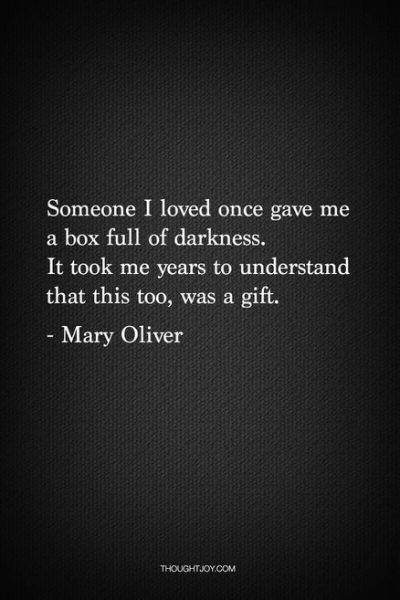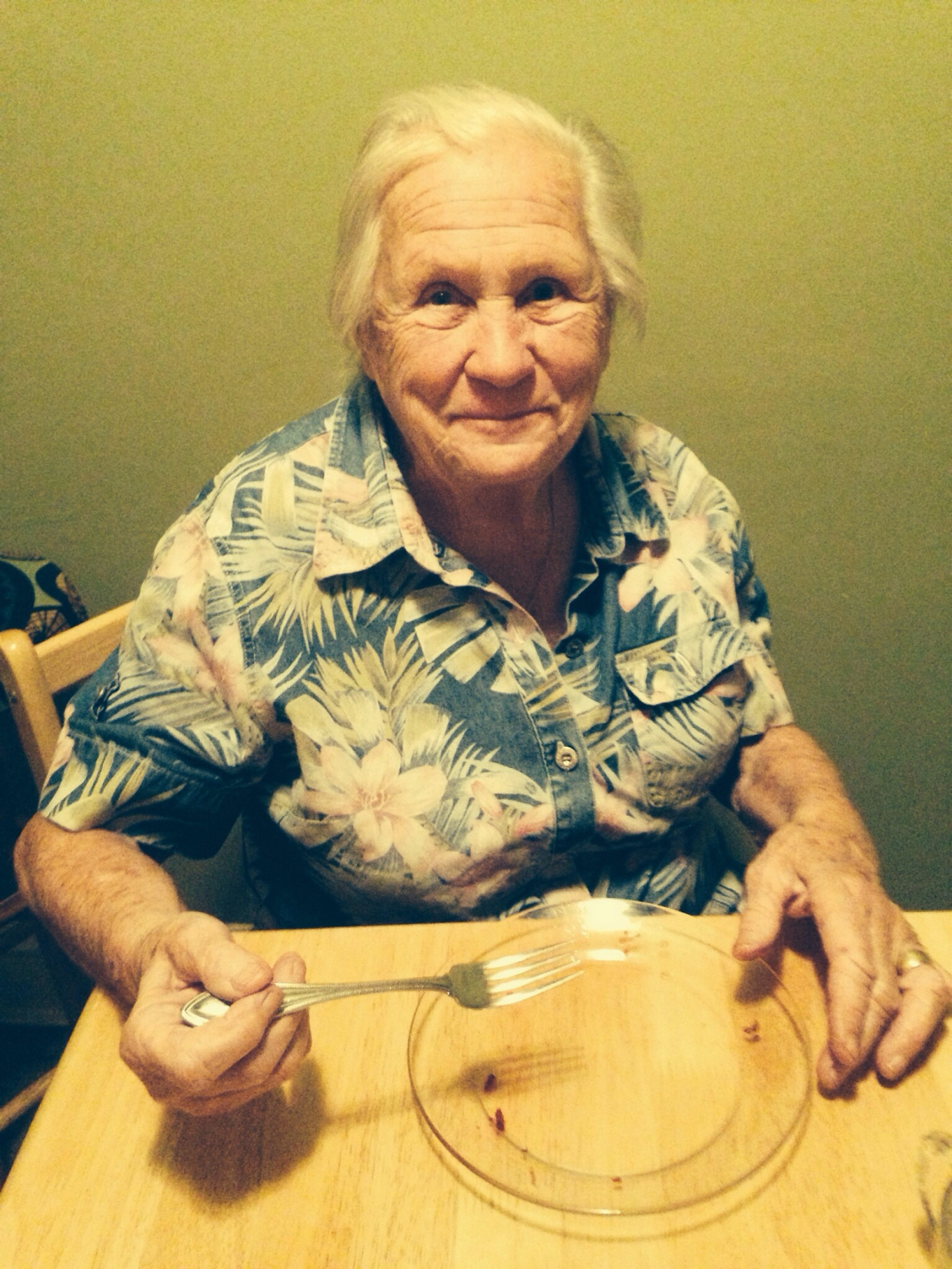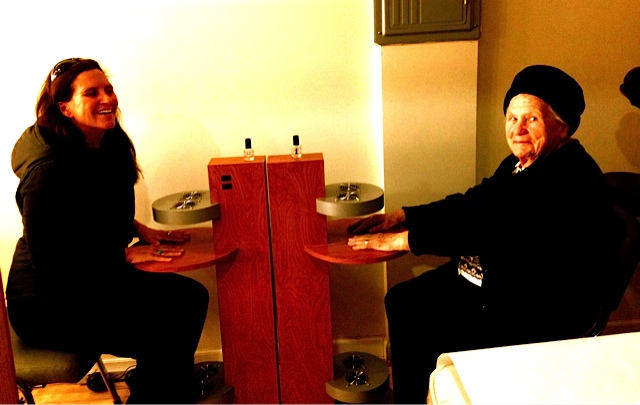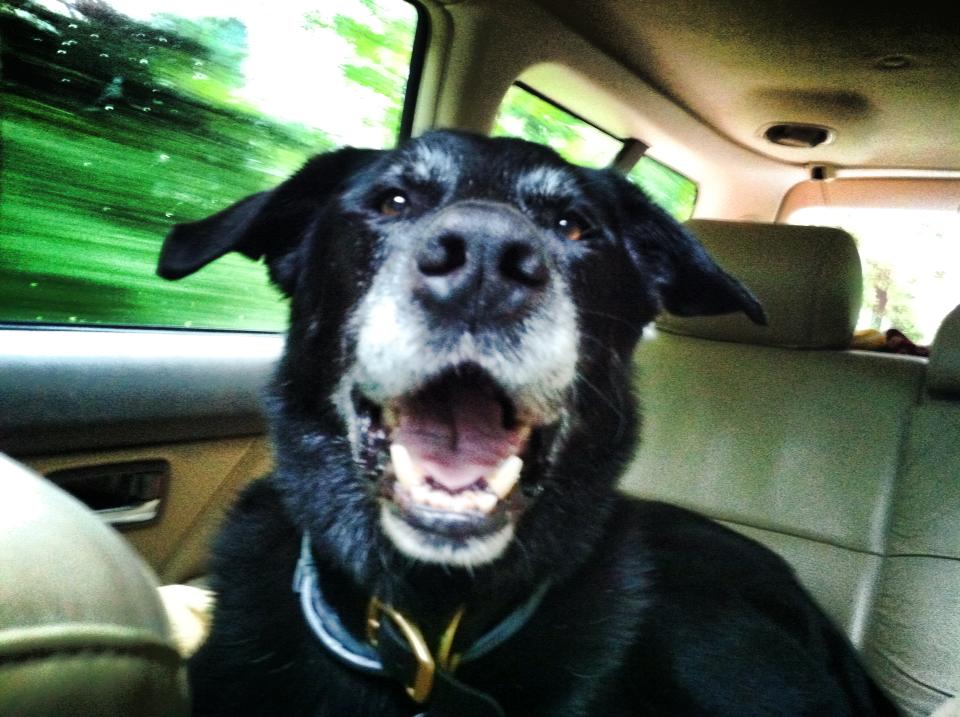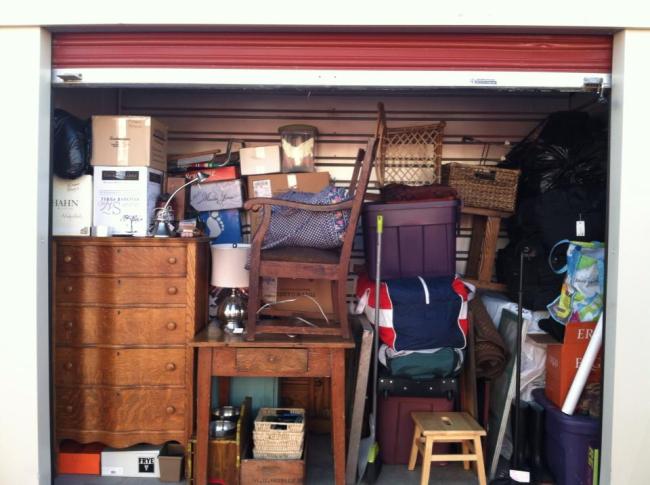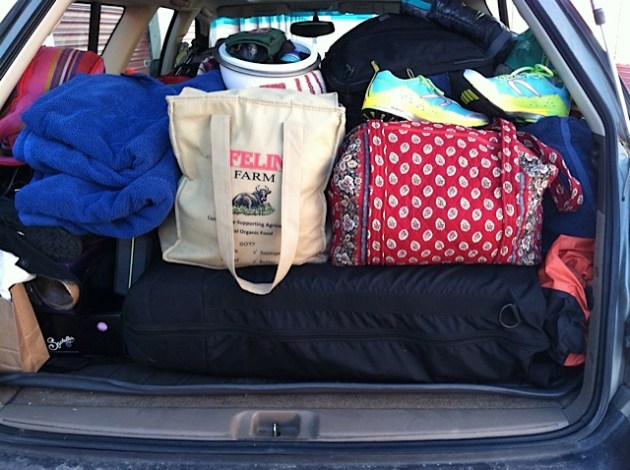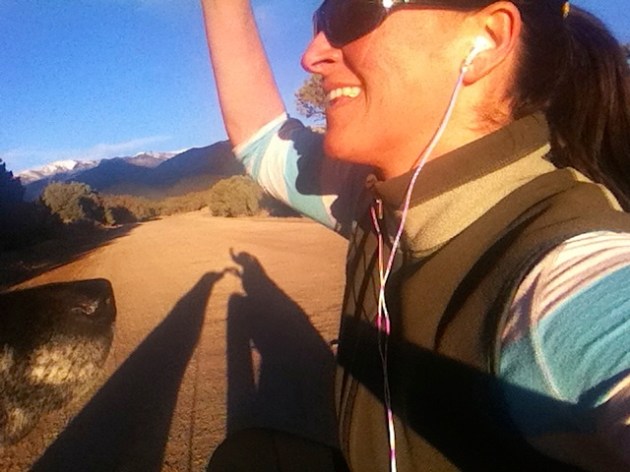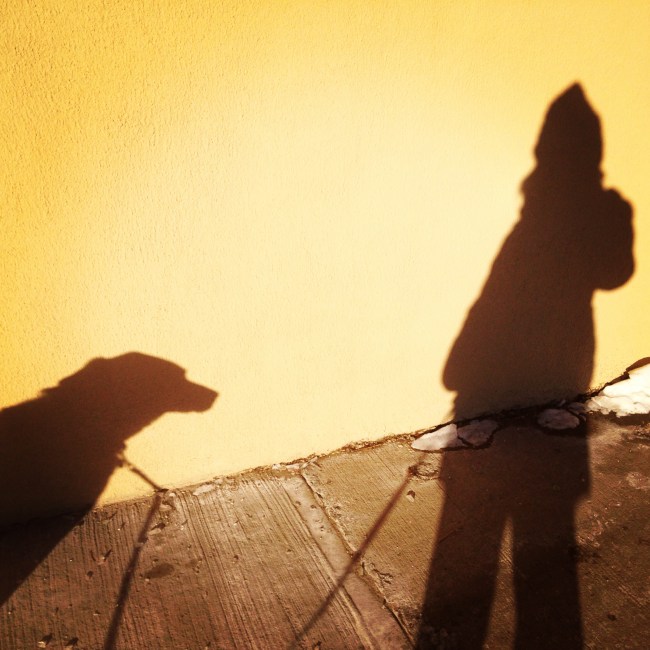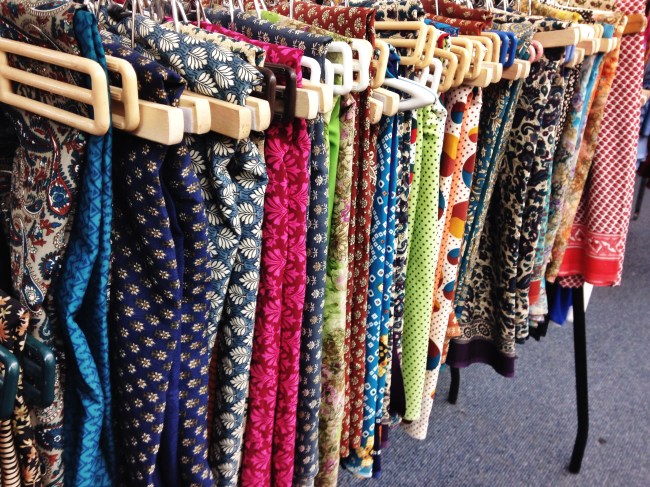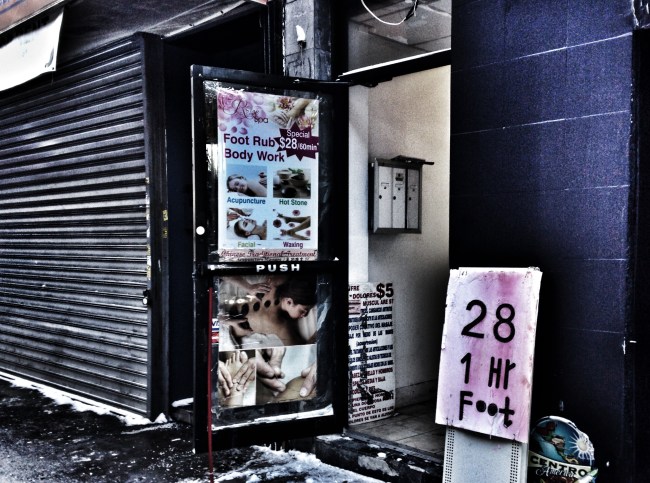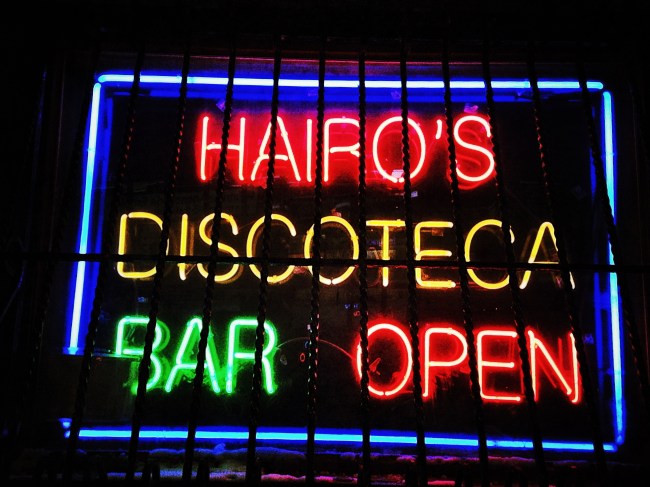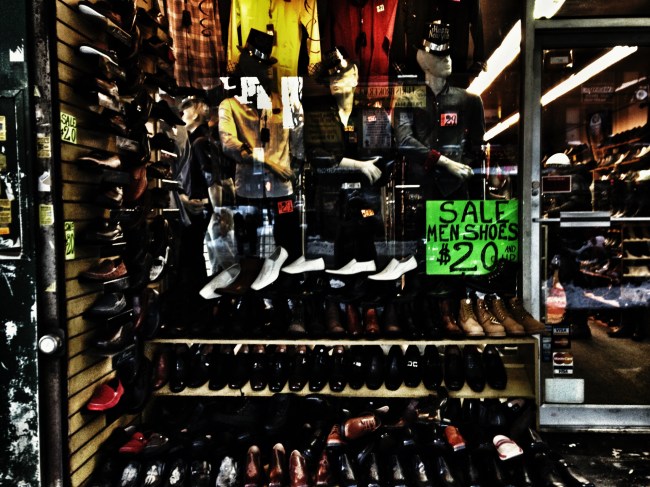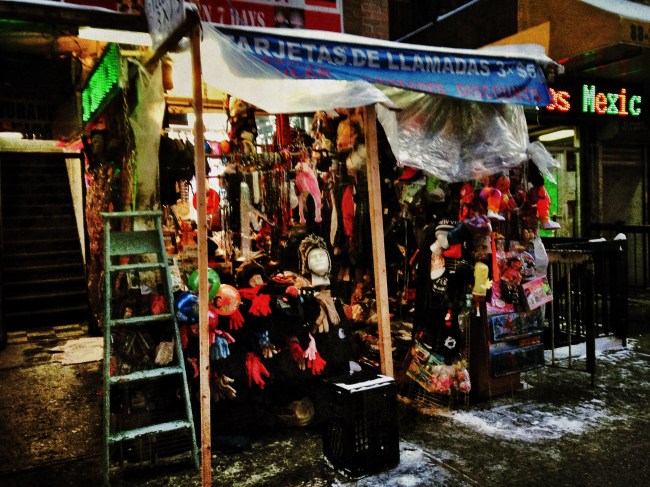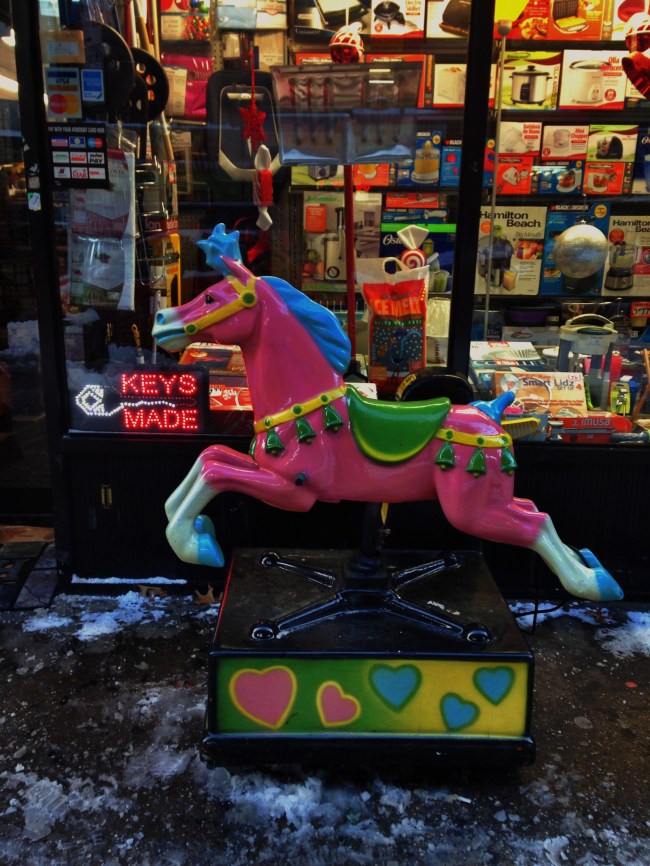*names have been changed
I’m no stranger to men capable of lying, and have dated the full gamut of emotionally unavailable men who’ve spun everything from half-truths to full-on whoppers. In my quiver of failed relationships are drug addicts, drug dealers, and a Latino, but the one I was blindsided by and wholly duped by was the one I’d promised to avoid at all costs: the married man.
I met Bob online and had no reason to find it suspicious that he was in town on business. The fact that he even had a job was a promising start; so many Missoula men aspire only to make enough money to have a new pair of skis/fly rod/dirt bike and a few extra bucks in their pockets. Bob works for the top medical device company and his work brings him to Missoula weekly, though he lives a few hours away. I now know that might have been one of the few things he told me that was actually true.
Bob promised to make me laugh or at least pick up the dinner tab. I analyzed the two pictures in his online dating profile and couldn’t tell if I thought he was cute or not, but he formed complete sentences and used proper grammar, which gave him a leg up on the majority.
I’ve never been a fan of long-distance relationships—they always seem neither here nor there—but I was up for trying something new, and a boyfriend in town just a few days every week could be exactly what I needed. Given my above-mentioned dating history, I tend to toward emotional unavailability myself. I’m certainly capable of more, but until the lesson is learned it’s easier to stick to what is familiar.
When Bob invited me to dinner I was currently having it, but he was persistent—only in town for the night—and suggested a glass of wine and dessert. Without putting too much thought into it I agreed, but forewarned him I’d be showing up in my dog-walking clothes. I called it my “Missoula casual,” and was proud of my confidence to show up in yoga pants for a first date, but truth was I didn’t feel like putting too much time or effort into someone I hadn’t even met yet. So I showed up for our first date in pants I’d picked up off the floor.
I told Bob I’m incredibly direct, and that if nothing else I’m authentic. I made it clear that I have no intention of pretending to be someone I’m not. I told him I passed that class years ago, then promptly retired. He found me clever. My confidence impressed him.
I wasn’t sure what to think about Bob’s Western getup that included a salad-plate-sized belt buckle and a black Stetson, but we dove into conversation and connected quickly. He’s from Idaho and has a hick accent, but he’s not a redneck, and he complimented me on my ability and willingness to see through his exterior and not judge him. He warned that his personality grows on people like something of a fungus, you just have to give it a chance, some time, and the right environment. I thought he was both witty and sharp, two of the top things I look for in a date.
Bob asked, “I’m not like the guys you usually date, am I?” I thought about the fact that when I told him I like to travel he mentioned he really liked Charleston and Laguna Beach when he went to those places for work, but I didn’t have the heart to tell him that when I said travel that wasn’t even close to what I meant. Instead I said, “Do you mean the Wranglers, the part about you being from Idaho, or the fact that you have a job?” We both laughed—it was all of those things and more—but inside I wondered if it was the Idaho bit that would be the great divider.
Bob told me I’m not like the women he usually dates—he always dates women who also have children—and that it would take some getting used to for him. He also told me he’d never dated a woman on his level, someone who’ll correct his grammar, someone who asks questions and seeks answers. Someone with the gumption to call him out when he’s incorrect. I’m guessing he’d also never dated a woman with a New Yorker subscription, a heavily-stamped passport, or a self-reliance that is both a blessing and a curse.
Although I willingly went out with him, I didn’t buy any stock. I didn’t think I drank his Kool-Aid, but it appears he’d metaphorically roofied me. I was proud of my newly cemented boundaries, boundaries that had previously been only lines in the sand. I didn’t see any patterns repeating and really thought I’d broken the mold on my past behavior with men.
We had a good enough time on our first date that Bob rearranged his schedule and took me out the next night too but this time he told me to pick the place. I chose one of my favorite restaurants and he paid, of course. He even used his corporate AmEx for his dinner, and a personal card for mine. Wow, I thought, what an honest guy.
I’d amped up my program and wore a skirt and boots—which Bob wasn’t shy about admiring—though he complimented me in a respectful way, not an “I-want-to-tear-off-your-clothes” way. He confessed that on our first date he’d been so engrossed listening to my stories that he’d completely forgotten to check out my boobs, and he’s a boob guy. My heart broke open a bit—he was more into my mind than my body—and it only barely occurred to me that he might have been full of shit.
After dinner we went for a drive up past my house toward the wilderness area and I made him promise not to kidnap me. I didn’t feel in danger, but made a joke to play it safe, “I know a lot of people who live up here, so if you’re looking for a place to dispose the body this is not it.” He laughed, told me not to worry. We drove around for over an hour, and as we crept slowly back to town he put his hand on my knee, looked me in the eye and said, “Can you tell I’m not ready to say goodnight just yet?”
I could, and it was sweet; we hadn’t even kissed yet. There was something lovely and old-fashioned about the pace, and because I wasn’t sure if I wanted a boyfriend in town, a long-distance relationship, or a boyfriend at all, I figured it was worth a shot to spend time with a kind man I could have interesting conversation with.
Bob texted me when he got back to his hotel to say he was sorry he’d promised not to kidnap me, and that I smelled fantastic. He sent me a link to a country song about a guy who wishes he hadn’t been too scared to kiss the girl goodnight. He asked, “If I stay tomorrow night will you go out with me again?”

He picked me up for our third date with wine and flowers. Earlier that afternoon he’d asked me my favorite colors, and then wore a shirt that was both blue and red. Bob believes himself clever, and in many ways he’s right. I invited him into my house after dinner, and we talked for hours before finally kissing in front of my bookshelf. With books as our witness I thought it auspicious.
I knew Bob has three kids in Bozeman he’d be spending the weekend with, and that I might not hear from him much. That was fine with me because I had my own plans and was on the verge of suffocation from three dates in a row. Bob texted me all weekend and then called early Monday morning because he had more work in Missoula and hoped I’d see him again. He told me he can usually “take it or leave it” when it comes to dating—his work and kids are the most important—but he felt different this time. He really liked me.
Bob spent three nights at my house that week, and I showed him the location of my hide-a-key. Our budding relationship catapulted to new territory. When we went to the supermarket together he grabbed my ass and kissed me, told me to get used to his public displays. We cooked together and he told me that was something he could definitely get used to. I introduced Bob to French Press coffee, to which he quickly became addicted. I showed him how to make it and helped him shop for his own pot, but he said it wouldn’t be as good without the beautiful view.
He leapt out of bed in the morning to let the dog out and feed him. It crushed my heart seeing them pad down the hall together, Bob calling Lucky “buddy” and then, on the way back to bed, saying “Don’t tell Mommy I gave you a little extra.” He noticed I was running low on dog food, and I told him I’d bought it but left it in the car. He immediately started toward my car and I said, “I can do it myself,” to which he replied, “But you don’t always have to.” Bob hauled in not only the forty-pound bag of dog food, but had tucked my gum, almond butter and garbanzo beans under his chin and armpits. Like it was no big deal.
This was not a casual hookup, not a booty call.
Bob made himself at home very quickly, which I appreciated, though it was slightly unnerving the way he inventoried my cupboards and cabinets, how he knew where to find floss and aspirin. He left an entire suitcase at my house that second week, and when I asked him if he’d miss anything he’d left in there he told me “No, I only miss where I left it.”
It was borderline too much, but it felt too good to deny.
My arrangement with Bob was unlike anything I’d had before, but it seemed to be just what I needed. I tend to be feel suffocated and need more space than most in my togetherness, so the fact that Bob is a traveling salesman and would be in Missoula a couple of nights most weeks seemed great. I’d have time for my friends, for writing, and for myself. I’d retain my personal rhythm and sense of self.
When partnered I tend to lose my grip on my own needs, so the time away provided a natural governor. Bob worried he wasn’t around enough for me, but I told him that my life was complete without him and that I’d long since given up thinking a man could bring me happiness.
He told me I was refreshing. He told me two of the hottest things about me are the fact that I have neither a full-length mirror nor a television. I liked the way he was thinking, and the night he suggested we get in bed at 9:00pm to read I had one of the best sleeps I’d had in years. I thought I’d won the jackpot.
Bob continued to spend several nights at my house every week, often driving several hundred miles out of his way so we could see each other. He told me “You’re not out of my way; you are my way. I’m here because I want to be.” Despite the fact that he told me he loved being “home” with me, he always booked hotel rooms so his boss wouldn’t wonder why his expense reports lacked lodging, and said any night I wanted to we could get a hot tub room and room service though we never did. Another reason he booked rooms was so he could maintain his diamond status with Hilton for free upgrades. His reasoning sounded pragmatic and didn’t raise a red flag for me, at least not overtly.
Despite the fact that Bob and I were playing house, we were still very much getting to know each other and had a lot of questions and background to cover. I was confused because his online dating profile said he was thirty-four and lives in Dillon, Montana, but he was actually thirty-seven and living in Bozeman. It seemed fishy, so I asked. He never missed a beat, and told me that he just hadn’t updated his profile in a while. I took this as a good sign that he’d been divorced and dating for at least three years. This was comforting because I didn’t want to be the first after a fifteen-year relationship, basically his entire adult life.
He also told me that when he took the job in Montana he thought he was going to live in Dillon, because it’s the center of his enormous territory, but his kids’ mom wanted to live in Bozeman. He drives 80,000 miles per year and spends 180 nights in hotels, so he’s rarely home and it didn’t much matter to him as long as the kids were happy and in a place he could easily get to them on weekends.
He told me he rents a room from friends in Dillon (in three months he never went there, and after the first mention it never came up again), and also has a little cabin down the road from his kids and their mom for weekend convenience. He went into details about the cabin (one room, no kitchen) and it’s historical significance in the Gallatin Valley. Because he’s rarely home, or so he told me, he didn’t need much of a place, and gave me details that bolstered his story but were unnecessary.
The parts of his story added up; at the time I had no reason to doubt.
One night Bob was doing paperwork at the desk in my kitchen while I heated up chicken soup I’d made over the weekend. The room was quiet, and felt more calm than eerie. My thoughts drifted, and then without thinking I turned to him, and with my spoon still in the pot, I asked him, “Are you married?”
I think I expected a fight. But instead his face softened, he made eye contact and said, “Yes.” He extended a hand to me, but I’d planted my feet. I returned his gaze but jacked up the level of hardness and intensity until he spoke again. In the weighted moments between words I wondered, depending on his answer, if I had the guts to throw a pot of boiling soup in his face. My pulse closed around my throat.
“I’m separated,” he said, and “have been for five years. We’re still married because it’s the only way for me to have access to my kids whenever I want. If we went to court I’d get Wednesdays and every other weekend. I’m not always around on Wednesdays, and I don’t see them enough as it is.”
“Your dating profile lists you as divorced,” I said, and he told me that it actually said he was separated, but I couldn’t go back and check because he had deactivated it after our third date because he liked me so much he didn’t need to keep looking. I don’t want to say he looked smug, but I’m quite sure now that he did.
I’m fairly certain his profile said divorced; I would never have gotten involved with a separated man. Married men looking for dates are on my permanent blacklist. In my opinion separated people need to wait it out. I’m leery of anyone getting out of a relationship who needs someone else waiting in the wings.
When I was a teenager and young adult my mother had relationships with married men and I saw how sad it made her. I never wanted to be on either end of that grief. I vowed to never engage in a relationship with someone who didn’t or couldn’t make me a priority, someone who still had a pair of boots under someone else’s bed. I promised myself before I even had a driver’s license that I would never get involved with a married man. Never.
Not even if he was no longer in love, not even if he wasn’t happy, not even if he though I’d hung the moon.
The previous year had brought a parade of married men into my life, all of them old friends, and it felt like a test. I was living with my mother, and together we were caring for my grandmother and facing the effects of dementia complicated by hoarding and an unwillingness to let people in her house to do repairs or assist with her care.
I’d been working on it, but had some lingering resentment toward my mother. She and I had both had advanced degrees in loving someone despite not always approving of her actions, and were both well aware that the door swings both ways on that.
I couldn’t help but wonder if the married men were showing up to test me or if they were showing up to offer me a different perspective on my mother. All I know was that they did show up and their agendas ran the gamut. There’s always a silver lining, and the silver lining was that I found myself able to truly forgive my mother.
Some just wanted to tell me of the crushes they had on me since the early 1990s that had remarkably stood the test of time. Some told me how much they admired my independent life out west, and that they were happy to see how well I’d grown up. Some of them wanted to take me out, some wanted to hook up, some just wanted to talk. One even said he’d leave his wife for me despite the fact that we hadn’t seen each other in fifteen years, though I neither asked nor wanted such a thing.
I sometimes engaged in more conversation than I should, out of curiosity more than anything—a curiosity to fathom the mind of a man who strays—but in the end I always told them the same thing: I deserve more than that and you know it.
One guy and I had unfinished business from a relationship in 1992 that almost got a second chance in 2001 when I was getting divorced. He’d asked me to move to his city, but I decided instead to move to Montana and we never spoke again until years later when he requested my friendship on Facebook.
It turned out he was coming to New York on business, so we arranged a lunch. In his blazer pocket he had photos from when we first fell in love and he spread them on the table between us. I asked about his wife and kids. We ate off each other’s plates, and after lunch we navigated lower Manhattan’s slush puddles and finally talked about what had happened between us.
I told him I was sorry; I owed him that as I’d basically disappeared on him without much explanation. I told him I was happy he’d found love, that he had a good life, that he’d gotten more than I could have given him. The conversation was way overdue, and it was an enormous relief to get it off my chest, to provide us both with closure.
He had time before his dinner meeting, so after walking all the way down to Ground Zero and looping back we popped into his hotel for a drink. While we sat there, semi-awkward with the elephant now comfortably bellied up between us, he received a call letting him know that his business partner’s flight had been delayed due to snow. He not only had reservations at one of the city’s best restaurants, but it was a fully comped meal.
“You’d be silly not to join me,” he said and I wasn’t sure, but I called my mother to tell her I wouldn’t be home for dinner. “I had a feeling,” she said, in a tone that sounded neither nice nor approving.
The comped meal included every course the restaurant offered and each one came with wine or cocktails. Although we sat there cozied up for hours in a corner booth, the end felt abrupt, so we walked around the corner to a French place with tin ceilings and a light that sparkled but was muted and understated as if partially eclipsed. I drank far more glasses of rosé than anyone should have in a moment like that.
We talked. Nothing intimate, just talking, and then around midnight we stumbled into a cab to his hotel, a cab that we’d arranged to also take me home to Queens. “I’m not ready to say goodbye,” he said, “I can’t have another goodbye like 1992.”
I was really too drunk to show up at my mother and grandmother’s house, so we went up to his room. We stayed up most of the night talking on top of the covers until we fell asleep in our clothes. We laughed in the morning—there wasn’t much to feel guilty about—and then headed to Grand Central where he’d catch a train to Connecticut for his meetings and I’d go underground to board my subway home.
We had a little time before his train, so we got coffees and a croissant to share. We walked through Grand Central Terminal, one of the most romantic places in the world, and the backdrop of millions of partings.
I walked him all the way to the track. We referred to the “best lunch ever” and laughed. All we’d done was delay the goodbye from the night before, and he said, “I’m still not ready. I can’t handle another goodbye like this.”
“But this is all we have,” I told him, “Another goodbye.”
I gripped my latte and walked away.
After the 7 train crosses inside the East River it goes above ground, and in the unforgiving light of the morning I sobbed behind my glasses. Most New Yorkers don’t notice much of what other subway riders are doing, but I felt exposed. Walking home I ran into my mother on the street and we went into the house where, once safely in the kitchen, I let it rip. I stood there in clothes I’d been wearing for twenty-four hours, and I cried. I showed more vulnerability to my mother than I had in decades.
I rarely admit to regrets—claim to have none and love buckling up for the roller coaster of life—but I revealed to my mother that morning that I might have actually blown it thirteen years earlier.
“Why didn’t you want to be with him after your divorce?” she asked, “Why didn’t you go?”
I didn’t have a great answer, but I wailed, “Because I wanted to move to Missoula.” Some things are better kept from mothers, and I’d never told mine of the disaster that had ensued when I shacked up with my boarding-school boyfriend in Montana. In real life, removed from the emotional turmoil of an extended lunch with a great guy I’d foolishly snuffed, I don’t actually regret moving to Missoula—it’s given me so much—but in that moment I wanted to something foreign to me: I wanted to turn back time.

After Bob fessed to being married I had a lot of questions, so we spent the next three hours sitting at the table while he explained. We had a light dinner and too much wine, but it seemed like he needed liquid courage for this one. I wanted to know how someone has three kids with a woman he’s not in love with, why he’s still not divorced after a five-year separation, I wanted to know if Donna knows he’s dating. He had an answer for everything. He opened up, he was vulnerable, he told me what felt like a complete story. I didn’t dump him and made a concession I wouldn’t normally make. (See above: NEVER.)
Bob told me about his father’s alcoholism and abuse, about his mother taking the kids to Oregon, about his sisters running away, about how every one of his siblings (minus the adopted gay brother) had kids pretty much out of school. He told me that he got involved with Donna when he was young and for all the wrong reasons. Then she got pregnant. They tried to make it work and she got pregnant again. He told me they only got married before their third child was born and only did it for the health insurance and because his family pressured him.
He told me that when he moved to Eugene for college his mother told him that he needed to go to church more so he promptly stopped going. I knew he grew up in uber-religious Southern Idaho, but he’d told me he wasn’t Mormon. I didn’t think to ask what religion he grew up with, and realize now that I probably didn’t ask because I didn’t want to know.
It’s funny how that works.
Bob never mentioned that he ever started going to church again, but only that there had been pressure from his family to marry the mother of his children. He loves the kids but referred to the marriage as his biggest mistake. I offered him a contrasting story—my story—about getting married and divorced young. I told him that when I was married I took my birth control pill at the same time every day because I wasn’t sure and I didn’t want to get myself into a situation where I was stuck. He flinched when I said “stuck” and I felt sort of bad. I told him I had a hard time understanding his story, but know he’d grown up differently than I had and that it’s wrong for me to judge.
In addition to having access to the kids whenever he wants, Bob told me that another reason he’s stayed married to Donna is because his company offers some of the best health insurance, and she not only has some shoulder problems, but also some mental health issues. He knows that keeping his kids’ mother happy is what’s best for his kids.
And now I’m saying: I’ll bet Donna has some mental health issues!
I periodically asked Bob about Donna. I wanted to confirm that she knows he dates, that she wasn’t under the impression that they’re in a committed relationship but just on a break. I wanted to know that she didn’t want him back.
Bob seamlessly assuaged my feelings and alleviated any guilt that he determined was unnecessary for me to feel. He told me their relationship was limited to talks about finances and the children, but one week he told me that over the weekend Donna had made him laugh, which he said was something I wouldn’t hear from him very often. She’d commented that he smelled like sandalwood and asked if he’d been in a “hippie house.”
I didn’t think it was all that funny, especially when he told me he’d told her no. I thought to myself: the Hilton doesn’t smell like sandalwood…I wanted to know why he wasn’t just upfront about the fact that he’s dating me and he said that he encourages Donna to date, but she’s “let herself go” over the years and lacks the confidence. He said that given her low self-esteem he didn’t think it was fair to flaunt his hot Missoula girlfriend.
He was cunning and crafty the way he used flattery to divert the graveness of his indiscretion. I don’t consider myself easily conned, but I fell for it.
Like I said: I’ll bet Donna has some mental health issues.
Despite the fact that we were full-on playing house, I never really considered Bob my boyfriend. I’m not sure why I shied away from that label, but he felt more like someone I was trying on than getting serious about. Deep down I knew he was more of a lesson than a love, though that line is often blurry. Regardless of the kids in Bozeman and the job that took him everywhere, I just wasn’t sure if he and I could have a future together.
I continued to have concerns about the fact that he grew up not only in Idaho, but not even in a town, just at an intersection between two rundown dots on the map, a place riddled with poverty and a deeply-rooted belief that God would save them all. Bob assured me he’d come a long way from there and had worked hard for it. He sent me essays from Elephant Journal and I joked that he must be the only boy from that intersection reading articles like that. He added “For at least two-hundred miles around, more if they never left.”
It put things into a perspective I wasn’t sure I was willing to either grasp or accept, but dating guys from my neck of the woods hadn’t actually worked out for me so I was being open-minded and trying something different.
Bob told me in the beginning that he wanted a relationship with me. He said he was so relieved to have met me, because all of the women he met online seemed to only want sex. He wanted sex too, he said, but he also craved connection, something he never had with Donna. He told me in the very beginning that he’d had a vasectomy, but if I wanted children of my own he certainly didn’t want that to be the deal-breaker. “There are ways around it,” he said.
We never used a condom. Not even once. Compared to my relationships in the past, the intimacy didn’t feel premature—I felt like I knew and trusted him—so I focused on that. I compared the present to the past—dangerous business at best—and drew conclusions with very incomplete information. We’d spent at least twenty hours staring into each other’s eyes and talking before becoming intimate, and even though I knew that pregnancy wasn’t the only concern with unprotected sex I did what so many do: I got caught up in the moment.
The night we went all the way his condoms were in his car. “I bought them right after I met you,” he said, “because I wanted to be prepared.” But then he wasn’t. I had some in my nightstand, but I knew they’d be too big for him and didn’t want that embarrassment for either of us, and, well, I think most of us have been in that situation. It’s not smart, it’s not right, but it just is what often happens when two people who like each other are naked in bed together.
Over the few months we were sleeping together I brought it up a few times—“I can’t believe we’ve never used a condom…”—and I don’t recall him every having anything to say about it.
Bob was attentive; he paid attention. If I told him I had a meeting, he called to check on how it went. If he knew I had a long day and he was getting off work earlier than I was, he’d text me and asked me if I wanted to go out to dinner or stay home, and if I picked home (always his choice) he’d have my favorite food waiting for me. He chose wine similar to what I ordered in restaurants, so I knew he was paying attention. He set the table, he walked the dog, he greeted me at the door with a kiss.
Bob liked coming to my house, and had told me that Donna was a slob. He said that for years he worked 60 hours/week and did all the house cleaning, but he tired of it and stopped. Then he moved out. I always made sure my house was tidy when he arrived even if the visit was unexpected and I’d spend a frenzied hour before work putting clothes in the hamper, doing dishes, wiping all surfaces and vacuuming. I always, always vacuumed, which strikes me as a bit odd, though I’m not really sure why. Bob appreciated it and told me, so I kept doing it.
Bob kept up his end of “house keeping” and he stocked my fridge and freezer. He’d stop at Costco for my favorite oranges, for salmon, for chocolate-covered almonds. He bought bacon and eggs so we could have a good breakfast together, because although we went out for breakfast once he just liked being in the house with me. He bought in bulk.
Bob told me out of the gate that it takes him a long time to introduce women he’s dating to his kids, and I respected that. I get uneasy when someone wants me to meet his kids too soon, or if I feel like he’s prematurely cleaning out half of his closet for me. I wasn’t in a hurry; the pace was fine with me. He was concerned that he thought I “deserved a weekend with him,” and I assured him that his kids are the number one priority and having him a few nights every week was enough. I wasn’t lying.
Regardless of what I said, Bob put in effort to show me that I mattered. He had a business trip to California and booked his ticket to and from Missoula so he could see me on both ends, including one weekend. I was grateful for his effort, and only felt a little bit guilty that he took time from his kids to be with me. Although I said it wasn’t important to me, Bob was adamant that we spend Valentine’s Day together. He stayed four nights with me that week, including Friday—when I roasted a chicken I’d prepped days in advance, just in case—and stayed until noon on Valentine’s Day.
I sent him a text thanking him for his effort and for starting his day with me. He accidently took a screen shot of that text, and when he synced his phone it saved to his photos. Neither of us would know this for another eight weeks, but it’s when Donna confirmed my existence in her husband’s life.
He said I was a friend.
My fondness for Bob waned considerably in March. He came to see me the night before I left to visit my mother in Florida, and he hoped to pick me up from the airport, because we were going to be apart for eleven days. I thought I’d miss him—and at first I did—but had no idea the turn the story was going to take.
Without any possibility of making plans to see each other, his communication was poor. I heard from him, but his messages were short, cryptic, and felt like riddles. I hate riddles. We’d gotten into a habit of sending interesting articles to each other and I sent him one, fairly benign, about parenting. It somehow took us down a rabbit hole of politics, and he became irate.
We noticed on day one that we have a lot of similarities. I told my friends “his brain is like mine,” and that makes me a bit nauseated now, but what I meant was attention to detail, excellent memory, inquisitiveness. Bob and I joked that we needed to have a fight to see how that went, and we’d tried to have some but with no luck—we always wound up agreeing!—though it now seems he was playing a game and agreeing so he could keep seeing with me. But finally, via text and email from across the country, we had our first fight.
One of his emails attacked my “typical liberal rhetoric,” which he’d previously been enamored by, and he used a lot of exclamations and told me to back up my position and “cite examples!!!” Within two minutes I sent him an article from The Atlantic that also cited references from the New York Times and other sources that, while left-leaning, are well-known to be top-quality fact checkers.
Bob didn’t reply for twenty-four hours. When he did he’d changed the subject and simply asked, “How is the beach?” I’d been irritated over his lack of response though it revealed to me how he acts when he’s wrong: he disappears.
I was concerned about Bob being politically or religiously conservative (there’s that Southern Idaho thing again), but he assured me he listens to all sides and considers himself more of an anarchist than anything. By his definition that means people should have absolute freedom to do whatever they want without interference (especially government interference) as long as they’re not bothering anyone else. I now see that Bob’s manifesto and personal definitions of “bothering” and “interfering” were self-serving and limited in point of view; he just wants to do what he wants without consequence.
That was the turning point for me. I couldn’t see him the same way again, and in fighting with him I saw what happens when his feathers are ruffled and it was not attractive.
The Universe stepped in while Bob and I were having our political spat. A guy I’d grown up with appeared in my life and we started writing to each other and talking. Over a few days we were in near-constant communication, and while I told Matt I had a boyfriend, I know that what I was engaging in would be classified as an emotional affair. I’m not so myopic to think that just because Bob was cheating on me (with his wife, if you can wrap your head around that, though it’s quite possibly there were others), that what I was doing wasn’t morally okay in a committed relationship. Though I was, of course, the only one who thought we were in a committed relationship.
Matt is also a writer and traveler, and we had interesting and engaging conversations talking about the interesting parallels our lives have taken since we left our suburban Connecticut hometown. Our commonality and shared history made me realize (again) how important those things are to me, and how it’s not feasible for me to have a relationship with a person like Bob who could even tolerate listening to FOX NEWS unless it was being parodied on Comedy Central. Matt remembered things about childhood—some that I did and some that I didn’t—and I had healing conversations with him I didn’t know I needed.
Bob didn’t pick me up from the airport, and that was fine, but then his work brought him to the other side of his territory, eleven hours away, and it was impossible to see each other. I didn’t care as much as I would have before our political spat, and because I hadn’t built my life around him I was happy to back in Missoula spending time with my friends and with Lucky.
The Universe intervened again, and after a weekend of not hearing from Bob I received a flood of messages from him on a Monday morning. For some reason they hadn’t transmitted through wifi, and arrived all at once when he entered back into cell-phone range. He’d told me that he wanted to come over on Sunday, but because I didn’t received his messages he got no response. Even though my silence was only because I hadn’t received anything to respond to, Bob started to shift. I was fairly sure I’d break up with him the next time I saw him, but when I picked the bones about the argument and his reaction to being wrong he said the magic words: “You’re right.”
We’d made tentative plans to go to Wyoming together at the end of the month because he has customers there and it’s a beautiful place where I also have friends it would’ve been fun to see. Lucky and I could tag along on the work trip and then we’d make a weekend out of it. Bob hadn’t followed up on a plan, and because his communication had been shoddy when I was in Florida—and he’d been working close to the area while I was away—I figured he might have just gone without me.
I’m intuitive, but not actually a mind-reader—which I see worked more in his favor than not—so when Bob told me he was looking forward to our trip I told him that I’d booked appointments for myself and couldn’t go. There was a flicker on his face that looked like rage, but he cleverly disguised it as disappointment. The real truth was that on a deep, cellular level I didn’t feel comfortable getting in a car with him to drive six hours. I have friends down there, but couldn’t shake the image of Lucky and I stranded on the side of a highway. Or worse.
The dynamic had permanently altered. I was booking appointments, making plans with my friends during the week, and setting clear boundaries. The shift in me caused a natural shift in him as well and it started to feel seismic in both strength and depth. I kept thinking I’d break up with Bob, but he kept driving hundreds of miles to see me, and then acted sweet and chivalrous upon arrival.
One afternoon I sat in the pedicure chair reading emails. Bob had surprised me by saying he was coming to town that night, but I’d made plans to have dinner with girlfriends and told him that I couldn’t change it. He was fine and said he’d hang out with Lucky and keep the bed warm. It seemed reasonable, and I was proud of my boundaries. But then I got an email that changed everything.
I saw that Donna, the wife he’s been separated from for five years, had looked at my profile on LinkedIn. No other social media websites let you see who is looking at you, but LinkedIn—because the whole purpose is networking—does. I sent Bob a screenshot with a one-word comment: interesting.
He concurred, said it explained why Donna had been acting “funny” the past few weeks. He said the last time she acted this way she’d hired a lawyer and he had to prepare himself for that. I thought back to their awkward arrangement of staying married for the kids and wondered if Donna doesn’t think it’s as fabulous as he thinks she does.
While I was at dinner with my friends, Bob messaged me that his grandmother was “in a bad way” and he was headed to Idaho to pick up his dad and go see her in the hospital. I didn’t think much of it beyond worrying about his grandma. It takes a real sinister character to lie about a sick grandma, and while I thought Bob might be a secret conservative, I didn’t think he was capable of that low-level lying. I hadn’t yet pegged him as a sociopath.
Bob could have just fessed then, but he didn’t, and he came back one more time to see me, armed with an elaborate story about his grandmother’s condition and how tired he was from spending the night in the hospital with her over the weekend. When he announced he was coming to Missoula that Monday I was honestly surprised, and lacked enthusiasm. He sent a text that said, “salmon for dinner?” but I felt a knot in my gut, not a rise in my heart. I’d grown tired of him thinking he could drop in whenever. There had been another shift.
Bob picked up food for us and we talked a little, but we were both tired and went to bed early. I felt unmoored and emotionally unwound by the fact that Lucky was turning thirteen the next day, and that I’d once again fallen short of the mark in finding a suitable partner for myself so my loyal, loving dog could rest. Bob thought it important to be there with me for Lucky’s birthday morning (he sure had a way of reeling me back in), and said he was looking forward to a lazy morning together.
But I had bad news: I’d booked a morning appointment then a coffee date and walk with friends for Lucky’s birthday. A lazy morning simply wasn’t in the cards. Another shift, another glimmer of rage on Bob’s face.
He tried to get me to cancel, but I was firm. I was seeing a Physical Therapist about issues related to my previously fractured sacrum, and how I could retrain my body out of its old holding patterns. It would take a while for me to see that healing my spine held weight, and was more metaphor than not.When I left that morning I barely hugged or kissed him goodbye. I didn’t do this intentionally; I just did it. He said he might make it back later in the week, but I was flippant. He got the message. I’d detached. The entire week went by and I heard nothing from him. I knew he was taking the kids to Idaho to visit family for their school break, but it was odd. Nothing.
After a full week with no contact I sent a message, then another three. It might have looked a little psycho—after all, I was done, wasn’t I?—but I’m no heartless tinman and I worried. I’d said to him in the beginning of our relationship that it occurred to me that something dire could happen to him—a car accident, a broken leg—and nobody would even know to tell me. All he said was, “Oh how sweet. You care…”
My wheels came off and I reverted back to an old behavior: I snooped. I mean, I didn’t really snoop, but I found his well-concealed Facebook page. He told me he had an inactive account, but I suspected otherwise and finally located him. The challenge was not so much that he has a fairly common name, but that he had himself listed as living in Oregon, a state that according to him he hadn’t lived in in over fifteen years. Tricky. Cagey. Sneaky. I didn’t like the way that felt.
I saw that he’d not only made a post a day earlier, but that he’d tagged Donna in it. I sent him a text about getting “Chummy with Donna again? Does that explain your disappearance?” I also remembered something he’d told me in the beginning that I’d subconsciously filed away for future reference. He’d told me that if he sensed me losing interest or backing away that he’d just disappear. I wrote another message (yes, I’m displaying all my crazy) letting him know that by not responding he was making it clear that he was disappearing. “Message received,” I said.
Bob had tagged two other people in his recent Facebook post, and I clicked on their profiles. I saw that he and Donna had sent a gift to a relative (ironically the same French Press coffee pot I introduced him to) and that he was in a few photos from something called “Memorial.” There were so many things in this situation that are outside the realm of Google, but this one was easy. I quickly learned that Memorial is the Jehovah’s Witnesses version of Easter.
I started researching the Jehovah’s Witnesses and learned that while adultery is frowned upon, if a man repents then the submissive wife is obligated to forgive him. A cornerstone of the JW cult is repenting; if they do then Jehovah forgives. The JW website says, “What a relief it is to know that Jehovah will forgive our sins—even sins as serious as adultery or murder! He will do so if we have a forgiving spirit, if we confess our sins before him, and if we manifest a changed attitude toward our bad actions.”
How convenient! A person just changes his attitude and he’s forgiven.
I became sick to my stomach. I sent Bob a frenzy of messages and he finally replied, to say goodbye, to wish me the best of luck with my writing, and that everything I’d figured out about him was true. At this point I didn’t know that he’d lied about his relationship with Donna, but I’m sure he was just beating me to the punch and apologizing in advance.
The following day was a daze, but after work I went to Donna’s Facebook page and sent her a message letting her know that I was no longer seeing Bob. I told her he’d stopped responding to me, but he’d left some things at my house and I would send them to her if she wanted them. I wondered if she really had hired a lawyer, and if so, Bob’s left-behind items might come in handy. When Bob had fessed about being married (though separated and living apart) I warned him, “Above all else I believe in the sisterhood.” I suppose he thought I was bluffing.
Over the next two hours I found out that they’re not separated and they live together as husband and wife. There’s no cabin down the road. I found out that when I backed out of the Jackson, Wyoming trip he took Donna and the kids. I learned that grandma was never sick.
Donna found out that I wasn’t just a friend and that her husband and I had been having sex. Unprotected, at that. She never got too riled up. She just kept saying he would deny everything.
I offered Donna all the evidence a woman needs to prove her husband was having an affair, but when I asked her point-blank what she was going to do she said, with unnerving ease,“I don’t know.” I couldn’t believe it, and realized that there was only one person in the equation who was really surprised by this information: me.
Bob hadn’t lied to me about his previous dating; the guy is a repeat offender.
Donna said she’d wanted to contact me when she first learned about me, but didn’t want to seem psycho. She seemed glad to have heard from me, to learn the score, though it didn’t seem she was really keeping one. She told me she’d read a lot of my blog and said, “You sound like such a nice person and very down to earth. I’m so sorry this happened to you.” It had happened to her before, so she’s used to it, but she knew I’d been blindsided.
My boyfriend’s wife was sorry this happened to me…
My heart broke for this woman.
Donna had to get the kids to bed and said we could talk more the next day if I wanted to, and it didn’t occur to me until later to wonder what Donna wanted, or if Donna even knew the answer to that. In the morning I worked, and then went to the post office to mail Donna’s adulterous husband’s things to her at work, hoping she’d present them with divorce papers, though in reality she probably slid his clothes back into place in his closet as if nothing had happened.
The next morning I messaged Donna with a direct question, a question whose answer had kept me awake most of the night. I asked her if her husband has or has ever had any STDs and her response was the kind of stuff that is beyond what anyone could make up, but sadly isn’t. (This is why I prefer non-fiction.)

I asked her about STDs in relation to her husband and she sent me an emoji. Very specifically, as you can see, she sent the blue Facebook thumbs up. That is some very sick shit.

Translation: If there is no wind, row.
I really hoped Ashton Kutcher might knock on my door to tell me I was being punked, but no such luck. I asked Donna, “Is that a yes?”
She replied, “Yes.”
Donna told me he has HPV, which despite being incredibly common is also potentially deadly. I hear it can be passed through kissing—not just through oral and genital intercourse—and that because it’s so common and easily transmitted nobody even talks about it or discloses their status. I’ve never tested positive for HPV, but told Donna that because her husband and I had never used condoms I’d keep an eye out for it.
She responded by asking me why I was having unprotected sex, and I felt the sting of the stones she threw at me from her glass house. I stared at the blinking cursor for a while and debated sending an emoji, but finally decided on a numbered list. I said, “1. Because I’m stupid and 2. Because he has a vasectomy.”
Donna’s next response was almost as good as the thumbs up. She said, “He told you he has a vasectomy?” It was the last thing she said to me.
I had to get to an appointment so figured we’d pick this up later, but by the time an hour had passed Donna had blocked me so we could no longer communicate. I had no idea if she’d even tell Bob that she heard from me, or if she’d just be glad—for the moment—to have her husband back to herself.
Having been the victim of untrustworthy behavior doesn’t mean that I can’t or won’t trust again, but I also know that when we’ve been lied to—and when we’ve denied our intuition and not trusted our guts—it is challenging to return to a place of trusting our own judgment again. In general I am an excellent judge of character, but when I’m wrong I’m very, very wrong.
When I lived in Honduras I dated a native who promised me he wasn’t like other Latino men, but it turned out he had girlfriends (he was a lawyer and called them clients) on neighboring islands. I’ve never had island fever or wanted out of a place as badly as I did the day I learned that news, but I survived.
I wasn’t sure I’d survive that one. I had to figure out how to rent my house and how to get Lucky and myself off the island back to the States. I didn’t even know where we’d go or what we’d do when we got back, but we needed to go home. That adventure is another story, but it serves as a useful reminder: I survived. In fact, we all survive. I can now say I’ve survived being on both unfortunate sides of the adultery equation, and I have no doubt I’ll be better for it. I already am.
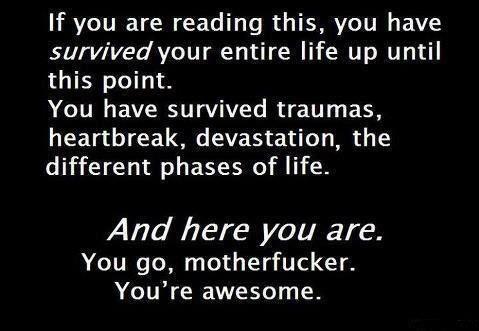
I’ve survived dating the sweetest drug addict you’d ever want to meet, who repeatedly and habitually lied to me about being high. He didn’t mean it—he was sick—but it carved away at my ability to trust myself, my judgment, my inner knowing. It was torture, though in that equation there was also love. He survived. I survived. We all survive, though the truth is that none of us get out of life alive.
A week after Bob and Donna erased me from their lives, I came home from work to find a Jehovah’s Witness pamphlet stuck inside my door, a pamphlet called “What is the Key to Happy Family Life.”
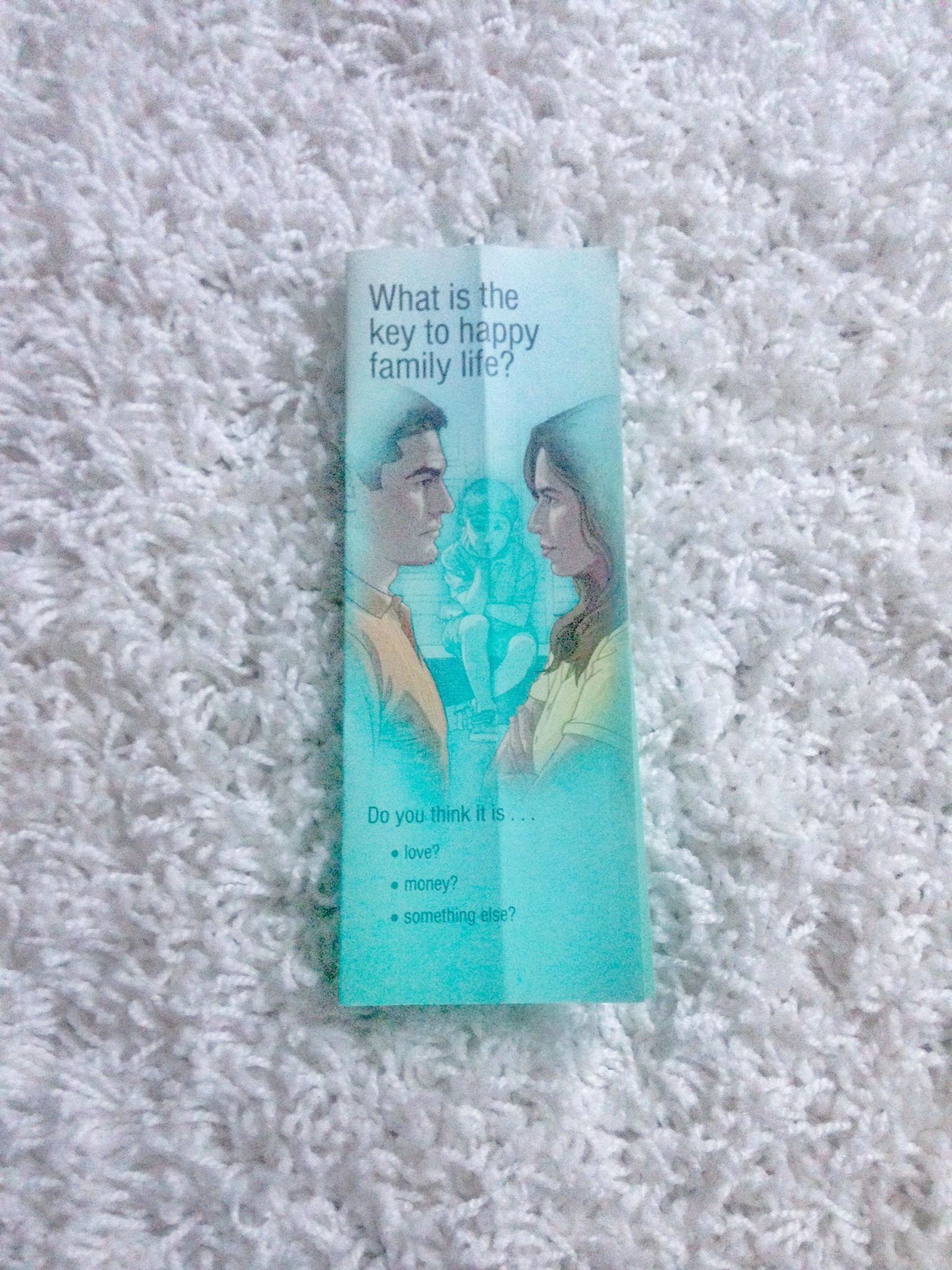
My heart raced. I opened the door to make sure Lucky hadn’t been messed with, then I ran back out onto the sidewalk to see if any of my other neighbors had a pamphlet. It was garbage day, so I looked to see whose garbage cans were still out: those people weren’t home. I check all the doors on both sides of me, but nobody else had a pamphlet. Of course they didn’t.
A pamphlet is not an apology.
I knew that the JW literature was not for me. It was for him. It was for Donna. It was for his religion that he’s committed to when it’s convenient. I’m sure its placement in my door jamb was simply a piece of the repenting process which was most definitely not about me.
I’ve learned a lot about the JWs. I’ve learned that they believe yoga opens a person to demon attacks. Jehovah’s Witnesses are advised against pursuing a higher education and see it as an improper use of time, but really they don’t want their people to educated themselves into a position of doubting the church. As an interesting side effect, Jehovah’s Witnesses have the lowest average education and income levels of any religion in the United States.
While they are against higher education (they call the educated “wordly”) they are not opposed to domestic violence. Watchtower articles praise women for staying with husbands despite violent abuse, and Witnesses are encouraged to stay with violent husbands except in extreme, life-threatening situations.
I couldn’t be further apart from these people if I tried, thoughgoodness I have tried. But I was duped. Bob outright lied. He lied by omission and he did it meticulously. Months later I still can’t figure out if I’m more disgusted that I had sex with a married man or with a Jehovah’s Witness. It was like the equivalent of doing an emotional speedball (heroin and cocaine mixed together, for those not in the know), when you think you’re simply taking a Tylenol and drinking a strong cup of coffee.
Before posting this, I did something I’d never done before: I sent the essay to my mother. I wasn’t looking for her permission or approval, but I wanted to make sure she was okay with the part that mentions her and told her that although it’s part of my story, I’d remove it if it made her uncomfortable. I also wanted her to have the opportunity to read about my most recent upsets before it went public. I owed her that.

Her initial reaction was that I think twice before “putting it out there,” but after a couple of days she felt differently and understands that as a writer I’m committed to telling my truth so that others may feel more comfortable with theirs regardless of whether they ever speak about it. But really my mother wanted to make sure that I’m okay.
In a lot of ways I’m more okay than I’ve ever been. I feel strong. I feel vibrant and alive. I have a huge smile on my face more often than not. I feel supported by my friends. In an odd way I feel healthier—both physically and emotionally—than I have in a long time. My mother asked me to promise her that I’m taking care of myself, and I did, with full confidence.
“You wouldn’t lie to me, would you?” she asked me and I laughed. “No,” I said, “I wouldn’t. I mean…I would. I would lie to you about my current state to protect you.”
She laughed and I did too, and then I said, “I promise I’m not lying now.”
There is always a silver lining.
